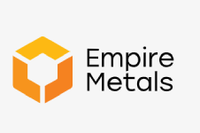Copper prices closed near nine-month lows on Wednesday, but rebounded on Thursday as concerns over the Eurozone’s debt crisis eased.
By Leia Toovey- Exclusive to Copper Investing News
Copper prices closed near nine-month lows on Wednesday, but rebounded on Thursday as concerns over the Eurozone’s debt crisis eased. The announcement on Thursday that the European Central Bank would make loans to cash-strapped banks caused a rise in the Euro relative to the Greenback.
The ECB, working in concert with major central banks including the US Federal Reserve, Swiss National Bank, Bank of Japan and the Bank of England will make a coordinated effort to supply ailing banks with funds, via loans. The announcement comes on the back of reports earlier in the week that European banks are having trouble accessing funds; a sign that Europe’s sovereign debt crisis is spreading to the region’s financial sector.
Copper for December delivery advanced 5.9 cents, or 1.5 percent, to $3.957 a pound by 12:44 p.m. Thursday on the COMEX in New York. Copper for three-month delivery climbed 1.2 percent to $8,736.25 a metric tonne on the London Metal Exchange.
Copper has grossly underperformed, compared to the plethora of ambitious price expectations for the red metal, voiced at the beginning of the year; however, Goldman Sachs announced this week that it is still optimistic over the metal’s future. Goldman Sachs Group (NYSE:GS) reported that they are “bullish” in terms of Brent crude and copper. “We remain constructive on commodities,” Allison Nathan, an analyst at Goldman for more than a decade, said in an interview today. Still, “risks to our bullish views have risen,” said Nathan, citing Europe’s sovereign-debt problems and a “mixed bag” of economic data from the United States. Copper may climb to $11,000 per metric tonne, while Brent gains to $130 a barrel, the report said. At the same time that Goldman Sachs’ report was released, Societe Generale released their own report, in which they said that there may be a “meaningful drop” in prices of so-called cyclical commodities such as oil and copper.
Around the same time that the ECB’s announcement hit the markets, news of potential supply disruptions also broke. Thursday morning, workers at Freeport-McMoRan Copper & Gold Inc.’s (NYSE:FCX) Indonesia unit suspended mining operations at its Grasberg mine. “All of the mining operations, except for the public facilities, are shut down. All workers at the mine are participating in the strike, which will last until Oct. 15 if the company refuses their demand for higher pay,” Juli Parrorongan, a labor union spokesman told Reuters. Freeport Indonesia responded with saying that the company has, since July 20th, negotiated in a “diligent and good faith manner” with the union towards a collective labor agreement that will cover 2011-2012. A spokesperson for the company added “We are disappointed that union workers decided to implement an illegal work stoppage.” There is a mediation session is scheduled for Thursday at the Ministry of Manpower in Jakarta.
The recent strike is just one example of a recent string of labor disputes to plague miners. Just one day ago, 1200 workers at Freeport McMoRan’s Peru copper mine Cerro Verde launched a strike demanding better pay and benefits. The unionized workers have planned a Thursday afternoon meeting to decide to proceed with what they are calling an “indefinite” strike. Freeport-McMoRan announced on Wednesday that production of copper and molybdenum at Cerro Verde hadn’t been materially impacted by the strike, and that the company will continue negotiating a new labor contract to replace the one that expired on Aug. 31.
While strikes have the potential to significantly increased the volatility of metals prices, analysts claim that the current labour disruptions are not likely to have a significant impact on copper prices, provided that the disputes are settled in a relatively short time period. “Strike actions tend to affect sentiment for a short period of time, but it rarely actually impacts the trade significantly in a way the market can see,” said Tom Price, Global Commodity Analyst at UBS (NYSE:UBS). “It takes two to three months for the concentrates from operations in South America or Indonesia to hit the market. In the meantime, there is a large scrap market to fill the supply gap.”
Securities Disclosure: I, Leia Toovey, have equity interests in Freeport McMoRan Copper and Gold Inc. and Goldman Sachs Group.




